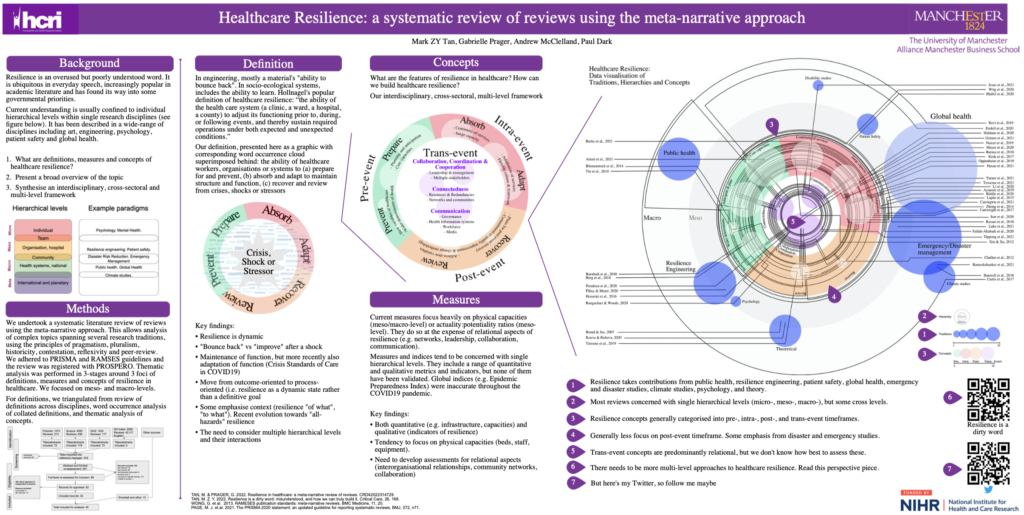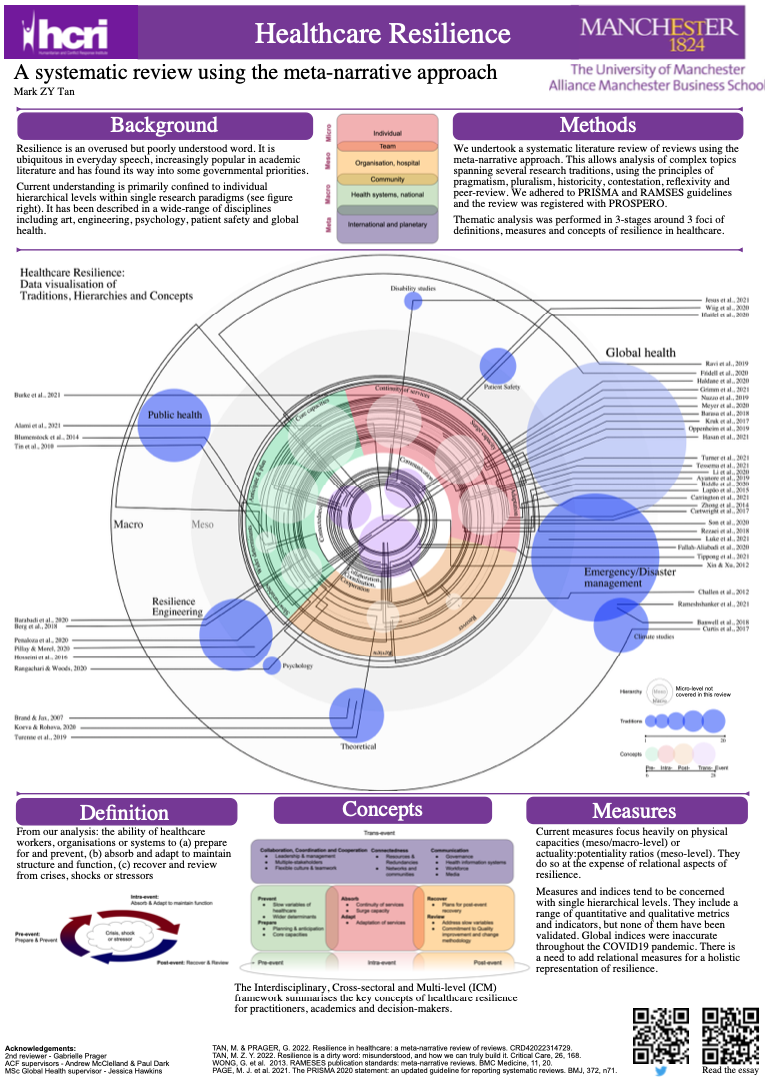A metanarrative systematic review and synthesis of reviews.
Full article here: https://bmjopen.bmj.com/content/13/9/e072136
For complex and multidisciplinary topics such as resilience, the meta-narrative approach presents a method to make sense of the various research traditions and paradigms involved, and allows a broad overview to be developed. For my NIHR academic clinical fellowship, I focused on healthcare resilience. This was part of a wider project called Recovery, Resilience and Renewal from COVID19, an interdisciplinary project between the Humanitarian and Conflict Response Institute and the Alliance Manchester Business School.
Two related pieces have been published from this project. The first was entitled “Resilience is a Dirty Word“. This zooms out from a micro-level towards wider concepts of resilience. It explores the delicate balances struck within healthcare, and seeks to improve understanding between difference hierarchical level. Free to read in BMC Critical Care. The second piece was a reponse and reflection after Queen Elizabeth II’s death in September 2022. “A Resilient Death” uses Erik Hollnagel’s Resilient Potentials to explore several issues relating to death and dying in intensive care medicine, and how we may reframe it going forward. This piece points towards landmark papers like the Lancet Commission into the Value of Death, the Lancet Commission into Climate Change, and the aforementioned seminal work on resilience.
Grateful for my collaborators and supervisors: Dr Gabrielle Prager, Dr Andrew McClelland, Dr Jessica Hawkins, and Prof Paul Dark.
ANWICU Trainee Prize
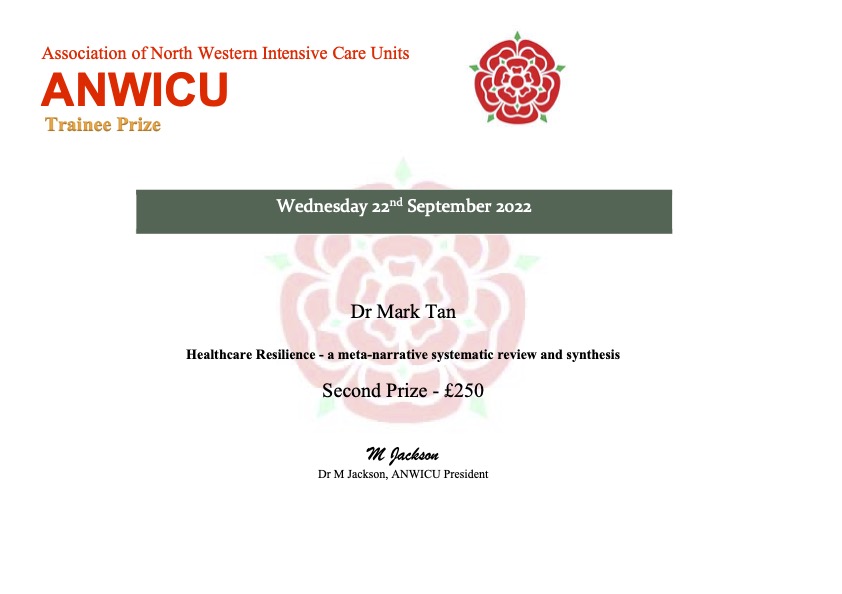
I was delighted to win 2nd prize for the Association of Northwest ICU’s (ANWICU’s) trainee prize 2022! This is the second time I have won an ANWICU trainee prize, and it was a privilege to present the work of my NIHR Academic Clinical Fellowship to fellow ICM trainees.
For this, I gave a 20 minute presentation entitled Healthcare Resilience: a Meta-narrative systematic review and synthesis. I began with surveying the audience about their impressions of the word “resilience”. For frontline clinicians, many associated it with acute psychological interventions for mental health such as mindfulness and vouchers. But the inadequacy of such approaches make it perhaps a dirty word, as explored in my essay Resilience is a Dirty Word. I then invited people to consider the etymology of the word, its use in many disciplines, and why many organisations and governments are furiously trying to pursue it after the COVID19 pandemic.
I briefly explored the hierarchical levels resilience has been studied in, the general disciplines which have been concerned with healthcare resilience, and proposed a unified definition to be used across all hierarchical levels.
I then spent a bit of time exploring some concepts in healthcare resilience, categorised into time domains of pre-, intra-, post- and trans-event. After that, I honed into the traditional focus on physical capacities at the expense of relational aspects of resilience, which led nicely into the next piece of work I will be doing, which is applying for a PhD training fellowship looking at Integrated Care Systems and understanding the nature of interorganisational relationships.
Five minutes of questions centred around available guidance for meta-narrative reivews, and what else is going on at different hierarchical levels to build resilience, a cheeky one about how best to use this evidence in the next email invitation for yoga classes and mindfulness training.
Manchester Foundation Trust Trainee Conference
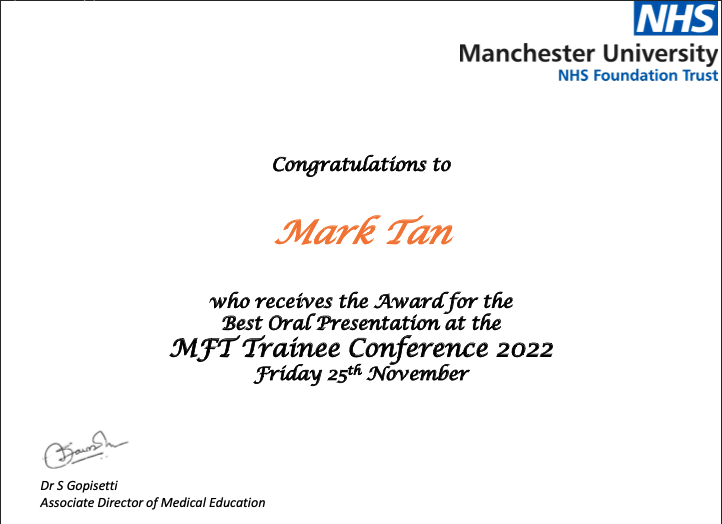
Another presentation, another prize. This time, it was the MFT trainee conference in November 2022. Since their theme was wellbeing, I thought it might be helpful to do a short summary of my findings. This was further shortened into a five minute presentaiton followed by a couple of questions.
Thank you Dr Sharmila Gopisetti for organising the conference and allowing me to present my work.
University of Manchester Integrated Clinical Academic Training Symposium
I designed and presented a poster for the ICAT symposium in 2022. After two years of COVID19 restrictions, this was their first face-to-face symposium, and it was attended by many of the ACFs, and several senior academics.
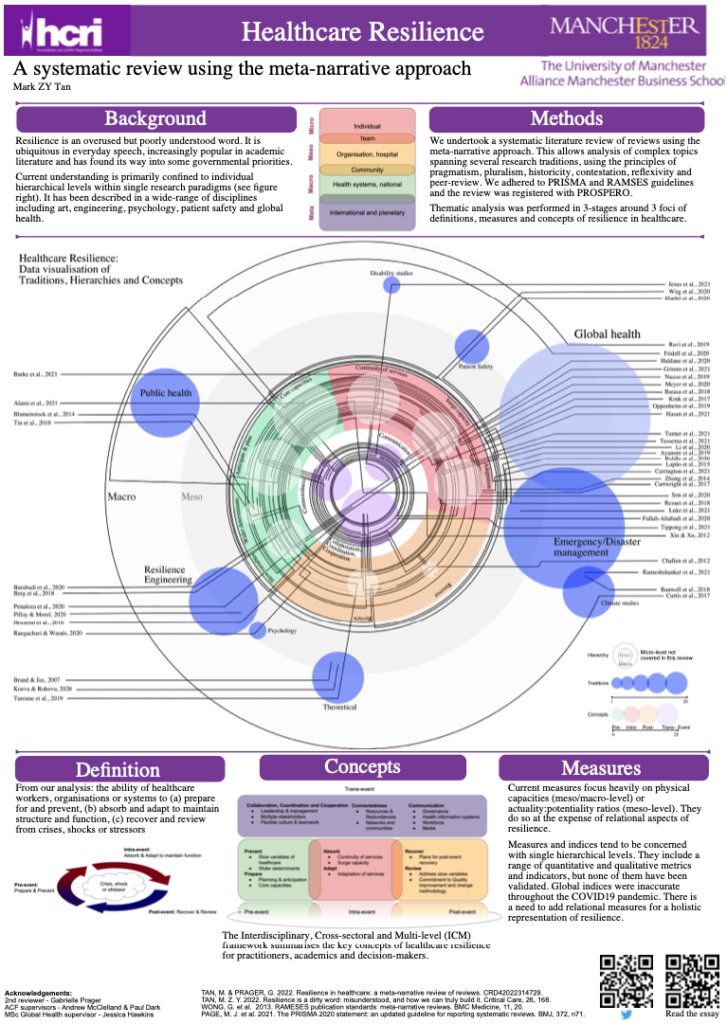
NIHR academy conference
NIHR academy held a lovely free conference for its members in Leeds. The theme was “the road less travelled – celebrating non-linear pathways”. There were several inspiring keynote talks, some informative workshops, and plenty of networking. I also submitted an e-poster for this.
